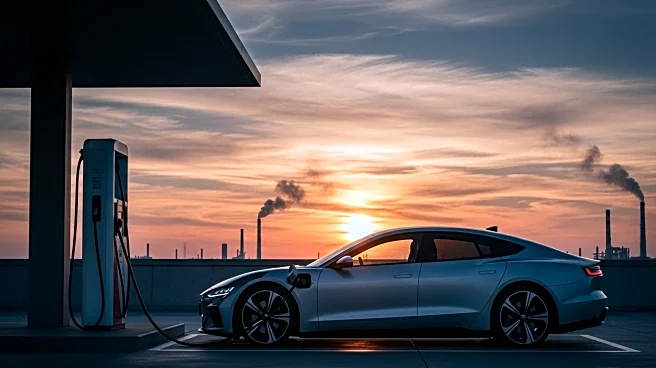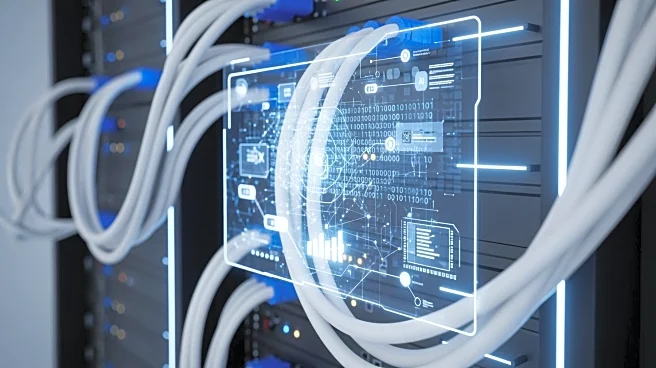What's Happening?
Automakers are experiencing financial strain due to tariffs, leading to potential price hikes in electric vehicles (EVs). Many brands are offering significant discounts to maintain inventory flow, with some models priced closer to traditional gasoline vehicles. This strategy aims to mitigate the impact of tariffs on profits, as companies strive to keep EVs competitive in the market.
Why It's Important?
The tariff-induced price hikes could affect consumer purchasing decisions, potentially slowing the adoption of EVs. As automakers adjust pricing strategies, the broader automotive industry may face challenges in maintaining growth and innovation. This situation underscores the delicate balance between competitive pricing and profitability, impacting stakeholders from manufacturers to consumers.
What's Next?
Automakers may continue to explore cost-saving measures and pricing adjustments to counteract tariff effects. Industry leaders might advocate for policy changes to alleviate tariff pressures, while consumers could see fluctuating prices in the EV market. The ongoing economic uncertainty may prompt further strategic shifts in the automotive sector.
Beyond the Headlines
The tariff situation highlights the interconnectedness of global trade policies and domestic industry health. Long-term implications could include shifts in manufacturing locations or supply chain strategies to minimize tariff exposure. This development may also influence future trade negotiations and economic policy decisions.










